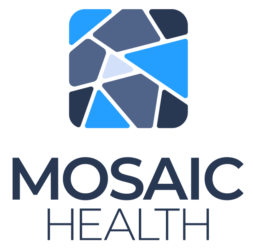One of the Least Embarrassing Things You Should Talk to Your Doctor About
by Ryan Baker, MD, FAAFP
Primary-care physicians often find themselves on the frontline of recognizing and diagnosing mental health issues in their patients, especially depression. In fact, according to the National Institutes of Health, more and more patients, especially patients with depression, are receiving psychiatric treatment from primary-care physicians.
May is Mental Health Awareness Month, and research has found that mental health disorders are so common that an estimated one out of five adults in the US experience mental illness, but less than half of those seek and receive treatment.
“Many patients think there’s a stigma associated with mental health or depression,” says Millennium Family Medicine Physician Ryan Baker, MD. “Mental health is just as legitimate an issue as blood pressure, heart disease, or diabetes, especially with all the added stresses of the last few years.”
Dr. Baker says he has seen a definite uptick of patients, especially older patients, coming into his office with signs of depression.
“It’s the isolation and the loss of social interaction,” he explains. “It really takes a toll on some people, but it can and should be addressed.”
A depression screening is just one part of Medicare’s no-cost Annual Wellness Visit, where you talk with your primary-care provider about how you’re doing, along with discussing all of your preventive care. Dr. Baker estimates that about half of the depression screenings he administers reveal signs of depression.
“Depression manifests itself in a lot of different ways,” he says. “Fatigue, loss of interest in activities, sleeping problems, loss of appetite, even guilt. These all can be signs of depression. It’s not always the classic, ‘I feel sad.’”
The depression screening includes a questionnaire that you complete yourself or with the help of your doctor. This questionnaire is designed to indicate if you are at risk or have symptoms of depression. If your results show that you may be at risk for depression, your doctor will perform a thorough assessment and refer you for follow-up mental health care if appropriate.
“We can start treatment right away. Either medication or therapy, or a combination of both, which most often has the best results.”
Poor mental health can have a negative impact on physical health and well-being. Research shows a strong relationship between depression and several diseases and conditions, including cardiovascular disease, immune system response, and substance abuse. Dr. Baker says he sees it across the board, and patients should feel comfortable talking to him about any issue, physical or psychological.
“There’s a long list of embarrassing things that you already talk to your primary-care provider about. Depression shouldn’t be any different.”
Just as your physical health depends on your relationship with your primary-care provider, so too does your mental health.
CLICK HERE – To get more tips on caring for your mental health, and information on when to seek professional help.




